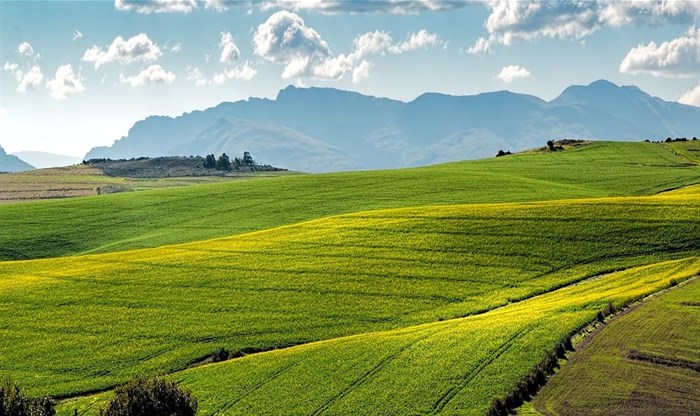
Top stories





Marketing & MediaWarner Bros. was “nice to have” but not at any price, says Netflix
Karabo Ledwaba 2 days

More news

Logistics & Transport
Maersk reroutes sailings around Africa amid Red Sea constraints


















Increasing urbanisation means food security must be guaranteed for an expanding population.
Climate change means increasing temperatures, changing rainfall patterns and a growing susceptibility to drought conditions; while technological innovations revise older farming practices whilst also expanding the definition of what agriculture is and can accomplish.
It would be difficult to imagine a more exciting time to be involved in South African farming: traditions must be respected and built upon, but there’s no denying the focus has shifted towards innovative approaches seeking to exploit South Africa’s diverse resources to the full.
While electricity itself is not a cutting-edge technology, improved access to cheap, reliable and sustainable electric power via wind and solar farms has the potential to boost agricultural efficiency and cut food losses.
Wind and solar energy are local and easier for rural farmers to access, but above all, electricity provides the means to take advantage of new ways to grow, process and store crops.
Internet connectivity allows farmers to access the information they need to increase productivity. This means real-time information about the market demand, plus precision weather and rainfall forecasts to maximise crop growth and yields. Farmers can now use phones and other hand-held devices to access markets. One example of how this transforms agriculture is the development of ‘virtual’ cooperatives to aggregate crop yields and broker better prices with suppliers.
The same infrastructure can also be used to secure agricultural finance at better terms.
GPS-based applications also promote precision farming. This digital mapping technology helps farmers survey their fields, analyse soils, navigate tractors, monitor growing crops and assemble accurate data on yields. Modern GPS systems also make it possible to keep working in darkness and during poor weather.
The ability of drones and satellites to collect local information from the sky means that GIS (Geographic Information Systems) is also a powerful agricultural tool. For instance, localised information saves fertilizers and can gather data on climate and vegetation, as well as helping with stock monitoring issues.
In addition, bodies such as South Africa’s ARC (Agricultural Research Council) facilitating artificial insemination and embryo transfer services have developed new strains of peach, nectarine and plum cultivars, introduced new forage crops and more.
New sustainable practices are growing up alongside more traditional farming methods.
So-called precision farming uses technology to constantly monitor and adapt the relationship between farming inputs and outputs in order to combat climate change, reduce the use of harmful pesticides and make optimum use of scarce resources whilst at least maintaining, and often increasing, expected yields.
Urban farming, on the other hand, takes an extremely pragmatic approach by looking to address the problem of distribution and supply by growing food in urban environments. This is where food is needed most and urban farming reduces the costs, whilst making urban farming a profitable venture for those who are attracted to solution-oriented food production.
Hydroponics in farming using mineral nutrient solutions to replace soil is another farming method which aims to minimise inputs whilst maximising yields. This method saves on land use (which again favours suburban environments), eliminates the restrictions of seasonality, and is estimated to use only 10% of the water required for traditional farming.
And because this system is essentially modular, hydroponics can be scaled to suit the size of various farm locations.
Agri-tech start-ups such as Cape Town’s Aerobotics, epitomise the wind of change blowing through South African farming.
Using artificial intelligence and machine learning to extract data gathered via satellite and drone images, the company supplies reports to farmers informing them of pests and disease protection measures. It gathers data which allows banks and insurers to assess the risks associated with agricultural proposals and ventures.
Elsewhere, Ntuthunko Shezi’s ingenious and exciting start-up, Livestock Wealth, effectively enables would-be farmers to purchase a "share" in South African cows. Describing his approach as "crowd farming", Shezi believes people will be persuaded to invest in cattle – an ancient token of wealth in rural Africa – more readily than in the stock market.
In his view, crowd farming is a viable way to grow because: "Sole ownership isn’t possible for a lot of people, but partial ownership is."
Historically, South Africa has proven it can adapt to social and political change.
The challenge and opportunity for present-day South African farmers is to work alongside government, industry and the technology and conservation communities to guarantee the sustainable health of the agricultural sector, in order to secure the nation’s food supplies for the future.
